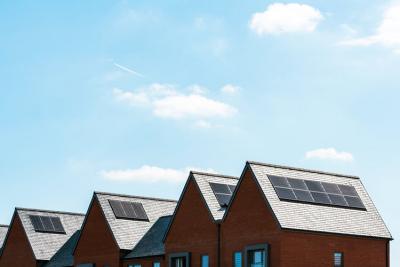The role of the consumer in achieving net zero
- Beth Moon
- Head of Consumer Insight and Behavioural Science
- Publication type:
- Blog
- Publication date:
Related Links
Changing our behaviour is crucial to hitting net zero: the Committee for Climate Change estimates that 62% of the actions required will involve some element of societal or behavioural change. These include changes to the way we heat our homes and power our vehicles.
In order to deliver the transition to net zero in a way that works for consumers, we need to understand what consumers think and how they may behave. This is why in Ofgem we take time to understand the attitudes, needs and behaviour of the consumers we are here to protect. Over the last year Ofgem’s Customer & Behavioural Insights team has conducted extensive research with a wide range of energy consumers to understand their perspectives on the net zero challenge.
Ofgem’s findings
Today we’ve published our findings.
Our findings show that many consumers are concerned about climate change and say they want to do their bit to help the environment. But many don’t know what they can do as individuals to reduce carbon emissions or don’t feel their actions will make a difference. They often talk about how they recycle but don’t know what actions they can take to reduce their energy consumption and struggle to connect this with climate change. Others have reservations about what they see as unproven technologies such as electric vehicles or heat pumps. There are a host of actual and perceived barriers that may impede behaviour change at the pace that is needed.
Intention-action gap
In part this is unsurprising because new low carbon technologies and services are in their infancy and many consumers may not be aware of the options. But we also know from our trials on consumer engagement with tariff switching that information alone is rarely sufficient to change behaviour.
The complexities of human decision making mean that our own behavioural biases can work against us and influence our behaviour in ways that we aren’t even aware of. Even when people say they intend to do something, they do not always do it. Behavioural Scientists call this the intention-action gap. Furthermore, people understandably prefer to stay with what they know – this is called the status quo bias. In energy these factors have a strong influence on behaviour.
Nor can we assume that behaviour change will happen when new products and services come onto the market, even ones that are designed to make life easy for consumers. But, by better understanding consumer views and the drivers of consumer behaviour, products and services and regulations can be designed in a way that helps to enable the desired behaviours.
Vulnerable consumers
There is no single ‘average’ consumer – we recognise that consumers have different and evolving needs, and our research helps us to understand these. Not all consumers will be equally capable of playing a greater role. People’s abilities to personally contribute towards reducing the carbon intensity of their energy usage will vary. As new technologies emerge, the challenge will be trying to maximise take-up for those consumers that stand to benefit, whilst also protecting those that can’t or don’t want to engage to make sure they aren’t left behind, such as those in vulnerable circumstances.
Smart charging
Ofgem has set up the consumers in decarbonisation project, bringing together retail policy and behavioural science expertise to understand what changes we, as the energy regulator, need to make to the energy system to support all consumers on the path to net zero.
One of the behaviours we are focusing on initially is smart charging of electric vehicles. “Smart chargers” can save electric vehicle drivers money and reduce the need for expensive new power stations and extra grid capacity to be built, cutting energy bills for all energy consumers. They do this by automatically charging when energy prices are cheapest, for example when wind and solar power is generating lots of electricity and demand is low at night. But to maximise the effectiveness of smart charging we need to understand how consumers respond to this technology and how they experience it. Our work will ensure that smart charging works for consumers as well as for the system.
Ofgem will continue to better understand the needs and behaviours of consumers and how this evolves over time, working closely with Government as the market develops, and sharing insights with industry as they emerge.
By using language that resonates with consumers, embedding consumer needs into new products and services and designing systems in a way that takes account of how they actually behave, Ofgem and the energy industry can start to help consumers on the journey we need to take to hit net zero.
More information on the consumers in decarbonisation project and research findings.
